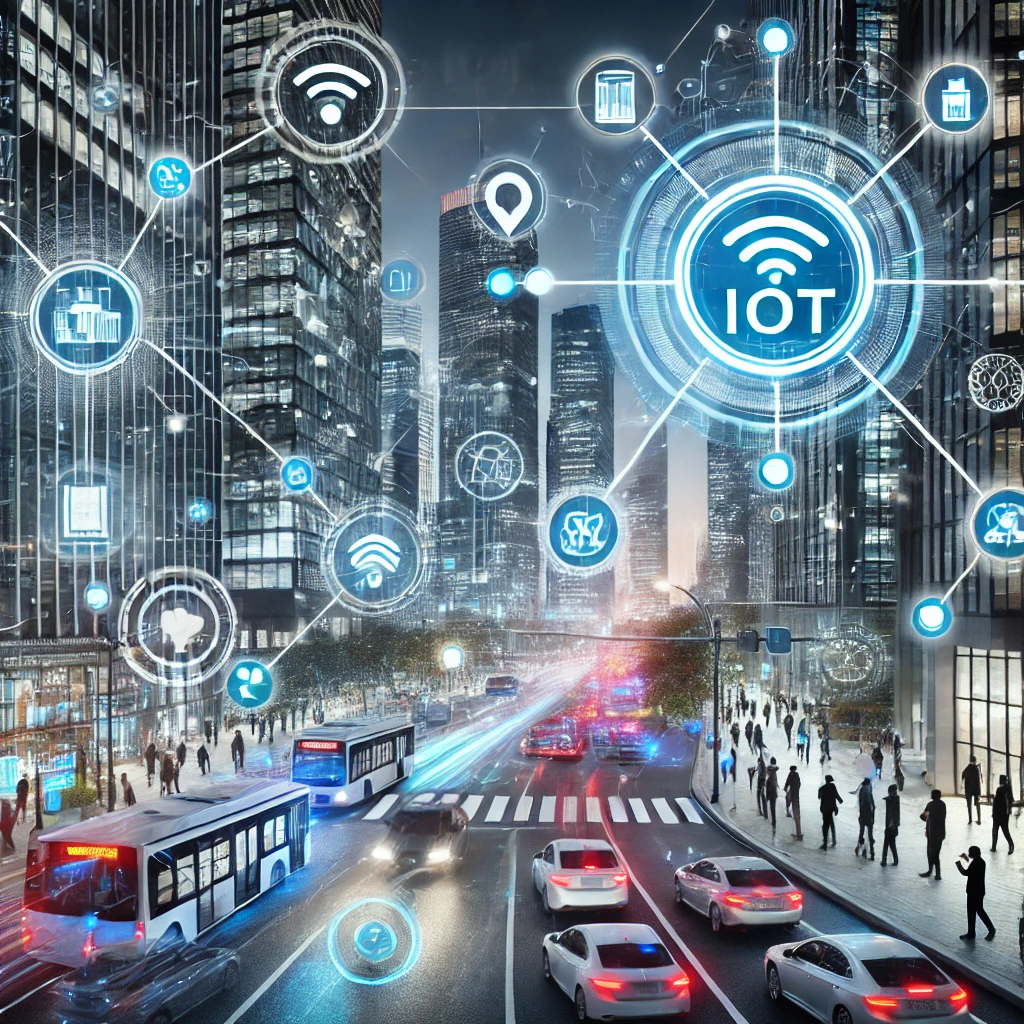
IoT: The Secret to Smart Cities and Smarter Living
The Rise of Smart Cities: How IoT is Shaping the Future
In today's fast-paced world, the concept of smart cities has quickly evolved from a futuristic dream into a tangible reality. Thanks to the Internet of Things (IoT), cities are becoming more connected, efficient, and sustainable. From smart traffic lights to smart grids, IoT is enabling cities to make intelligent decisions based on real-time data. But how does it all work, and what role does IoT play in this urban revolution?
The Power of IoT: A Network of Connected Devices
At the heart of smart cities lies the IoT, a network of interconnected devices that communicate with each other to gather and share data. This could range from sensors in streetlights that adjust brightness based on traffic or weather conditions, to smart waste management systems that optimize trash collection schedules. The more devices that are connected, the smarter and more responsive the city becomes, ultimately creating a better living environment for residents.
Smart Homes: A Peek Into the Future of Living
Imagine walking into your home after a long day at work, and your smart home is already set up for you. Lights adjust to your preferences, the temperature is perfect, and your favorite music starts playing. This is not a sci-fi fantasy, but a real possibility thanks to the latest smart home technologies. With IoT integrated into everyday appliances, home automation has never been more accessible or advanced.
Best Smart Home Gadgets to Simplify Your Life
- Smart Thermostats: These devices learn your preferences and optimize your home's temperature, saving you energy and money.
- Smart Lights: Whether you want them to brighten up your living room or set a cozy ambiance, smart lights offer full control from your smartphone.
- Smart Speakers: These voice-activated assistants can help you manage your day, play music, control other devices, and even provide news and weather updates.
- Smart Security Systems: Protect your home with smart cameras, motion sensors, and doorbell cameras that can be monitored from anywhere in the world.
AI and IoT: A Match Made in Tech Heaven
Artificial intelligence (AI) has rapidly become a crucial component in the world of IoT. While IoT provides the data, AI interprets it to make intelligent decisions. This combination is what powers many of the smart features we see in our daily lives, from personalized recommendations on streaming platforms to autonomous vehicles. But what does this mean for the future of smart cities and smarter living?
The Latest Innovations in AI and Their Real-Life Applications
AI is helping to create smarter, more efficient systems by analyzing and learning from data. In the context of IoT, AI is used to predict patterns, optimize resource usage, and make automated decisions. For example, AI can analyze data from smart traffic systems to optimize the flow of vehicles in real time, reducing congestion and improving air quality. In the home, AI can control IoT devices to create personalized environments tailored to your habits and preferences.
5G: The Backbone of Smart Cities and IoT
When it comes to connecting millions of devices in a smart city, speed and reliability are essential. That's where 5G technology comes in. 5G offers faster speeds, lower latency, and more reliable connections compared to previous generations of wireless technology, making it the perfect enabler for IoT applications.
Top 5G-Enabled Devices You Need to Know About
- 5G Smartphones: Stay connected with lightning-fast internet speeds, enabling seamless browsing, streaming, and gaming.
- 5G Routers: These devices allow homes and businesses to take advantage of the full power of 5G for faster and more stable internet connections.
- 5G IoT Devices: From smart sensors to connected vehicles, 5G provides the infrastructure to support a wide range of IoT applications that require low latency and high data transfer rates.
Sustainability Meets Technology: The Future of Green Living
As the world becomes more focused on sustainability, technology has stepped up to offer innovative solutions that benefit both people and the planet. IoT, AI, and 5G are all contributing to a more sustainable future by optimizing energy use, reducing waste, and improving environmental monitoring.
Practical Uses of Sustainable Technologies in Everyday Life
From smart thermostats that reduce energy consumption to waste management systems that help reduce landfill waste, sustainable technologies are making an impact in various aspects of daily life. For instance, IoT sensors in agriculture can help farmers optimize water usage, reducing waste and conserving resources. Similarly, smart grids enable more efficient distribution of energy, reducing overall consumption and promoting the use of renewable sources.
The Intersection of IoT and Everyday Life
While the technological advancements brought on by IoT, AI, and 5G seem to belong to large corporations or government initiatives, they have already begun to influence everyday life in profound ways. From smarter homes to more sustainable living, these technologies are reshaping the way we interact with the world around us.
How IoT is Revolutionizing Industries
IoT is not just about smart cities or homes; it's revolutionizing industries across the board. From healthcare to agriculture, retail, and manufacturing, IoT is enabling smarter operations, improving efficiency, and enhancing the customer experience. For example, in healthcare, IoT devices allow for remote patient monitoring, reducing hospital visits and improving patient outcomes. In agriculture, IoT sensors help farmers track crop conditions and optimize irrigation systems to reduce water usage.